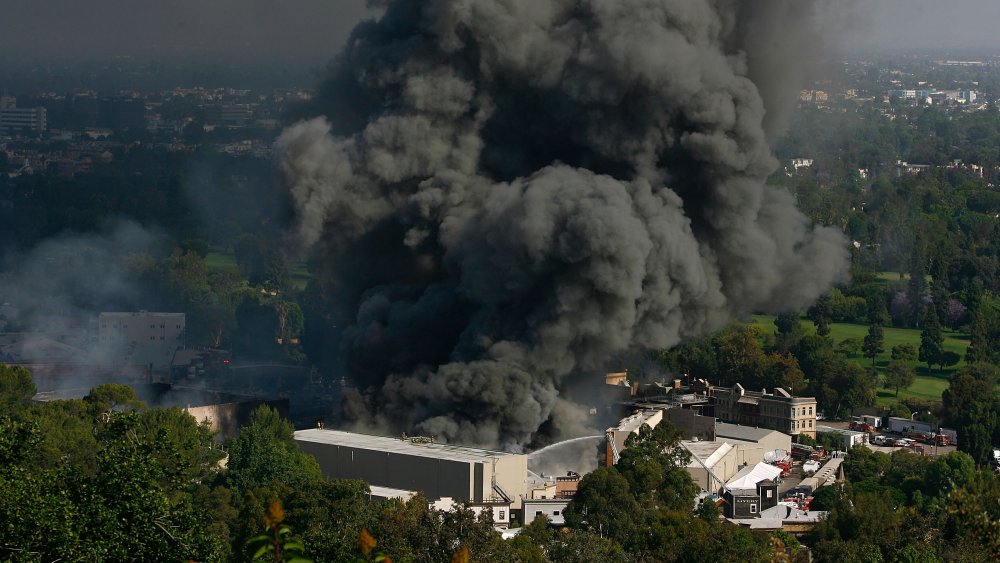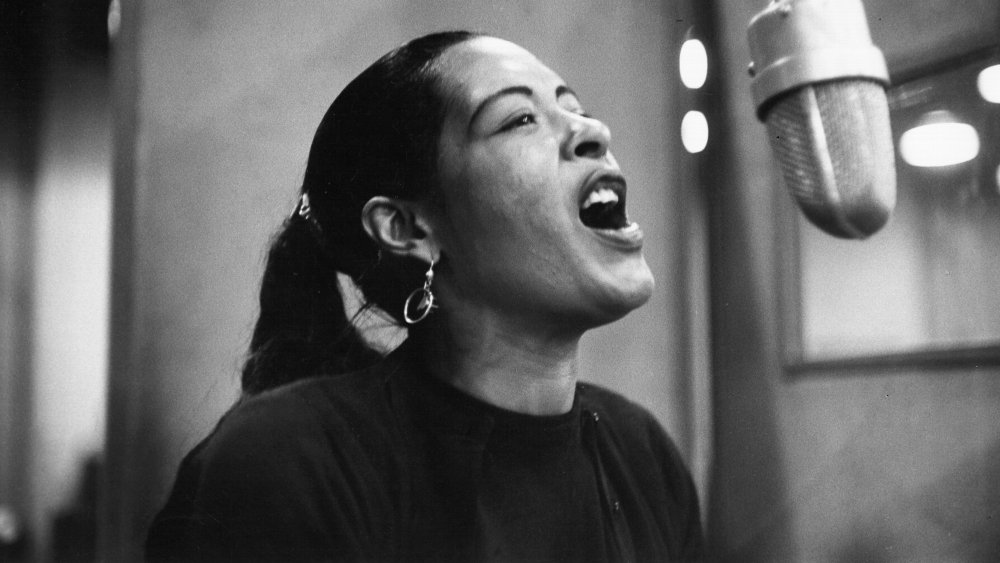The Truth About The 2008 Universal Studios Fire
"Fire is good," Harold the Hermit says to The Monster in Young Frankenstein. "Fire is our friend." He's not wrong about that. Sitting around the campfire, toasting marshmallows. Warmth in the cold. Light in the darkness. A candle for reflection or even romance. Preparing food. Sure, there are those internet flame situations that give more heat than light, but a place for everything and everything in its place, right? Certainly fire has played an important part in human history — think of Nero's Rome on fire in 64 CE, for instance, or the British burning the White House in 1814, or the Great Fire of London in 1666, not to mention the Great Chicago Fire of 1871. Fire and human beings. It's a mixed record.
All of those conflagrations have had their cinematic moment. It makes for visual spectacular, and the movies are frequently about the spectacular, and have been since the beginning. One of the earlier studios was Universal, dating back to the very early days of the 20th Century. And like many of the other movie studios, Universal branched out into other areas of entertainment, and acquired other companies along the way.
Billie Holiday's entire catalog of master recordings might have been lost
Part of the corporation was Universal Music Group, valuable in part because of original master recordings the company held — the original media of seminal artists ranging from individual recordings to entire catalogs of people like Billie Holiday and Buddy Holly. Depending on who you believe, a half-century of recordings — about 500,000 of them — went up in smoke from a fire at a warehouse at Universal Studios Hollywood in 2008. NBC News described the items this way: "the audio equivalent of the original negative for a photograph."
The studio downplayed the losses, claiming that a report by The New York Times Magazine was inaccurate, as the Los Angeles Daily News reported. "In a sense, nothing was lost," said a spokesman, citing the studio's digital backups of recordings. But the losses were, in fact, incalculable. Every time a copy is made, something is lost of the original work. Master recordings would include pieces that became hits, but potentially would also have work that was recorded but, for whatever reason, never released. "What we can't predict is what will be considered a treasure 20 years, 30 years, 50 years from now," Gerald Seligman, executive director of the National Recording Preservation Foundation, told NBC. "And a lot of that was destroyed in this fire."
With the fire, what is essentially historical source documentation of the American music industry is lost. Forever.

